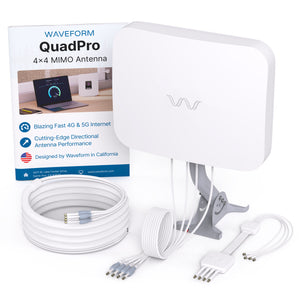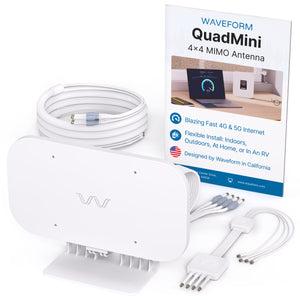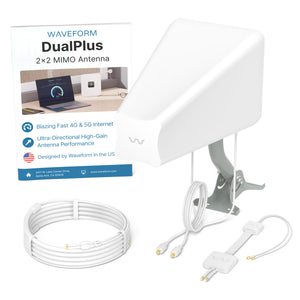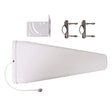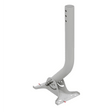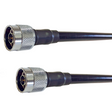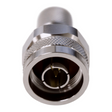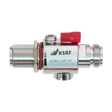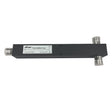Across the District, connectivity can be surprisingly uneven. Federal buildings with decades-old concrete, sprawling university campuses, and fast-growing logistics hubs in Northeast all struggle with WiFi dead zones and congested public cellular. A good example is the cold-chain warehouses clustered around New York Avenue NE, where steel racks and refrigerated walls block signals yet staff still need barcode scanners and cameras to stay online.
Why Washington D.C. Organizations Are Turning To Private 5G
Washington D.C. runs on information. Government agencies demand airtight security, healthcare providers rely on real-time data, and event venues must keep thousands of visitors connected without lag. These requirements collide with several local realities:
- Dense spectrum environment. Public safety, federal, and commercial users compete for the same airwaves, creating interference that degrades WiFi and public LTE performance.
- Hardened construction. Many buildings use thick limestone facades or post-war brutalist concrete that eats RF signals.
- Strict security policies. Devices often need to stay on an isolated network that never touches the public Internet.
A private 5G network over Citizens Broadband Radio Service (CBRS) spectrum solves each pain point with licensed-by-rule bandwidth, higher transmit power, and on-premises traffic handling.
Industries And Venues That Benefit
-
Federal campuses and contractors. CBRS keeps sensitive data inside the perimeter while giving outdoor coverage across parade grounds and parking lots that WiFi cannot touch.
-
Hospitals and research centers. Low-latency 5G handles telemetry, telemetry, and AR headset feeds even in shielded surgical suites.
-
Universities and K-12 districts. One or two small cells can blanket sports fields, courtyards, and temporary classrooms where trenching fiber for WiFi access points would be cost-prohibitive.
-
Warehouses and distribution centers. Private 5G maintains reliable roaming for handheld scanners, AMRs, and security cameras under tall steel roofs.
-
Energy and utility sites. Long reach and deterministic quality of service make it ideal for monitoring substations, solar arrays, and micro-grids scattered across Southeast DC and Prince George's County.
Because we are vendor-neutral, we match radios and user equipment to each environment. For instance, Celona edge gateways fit nicely into temperature-controlled data closets, while Airspan outdoor small cells withstand Washington's hot, humid summers and occasional nor'easter icing.
How Private 5G Beats WiFi And Public Cellular
Power. CBRS small cells transmit at up to 47 dBm EIRP, roughly 100 times more power than a standard WiFi 6 access point. That reach means fewer radios, simpler backhaul, and better penetration through masonry.
Clean spectrum. CBRS channels are coordinated by the FCC's Spectrum Access System to avoid co-channel interference. In practice you get enterprise-grade bandwidth even when nearby offices run busy WiFi networks.
Predictable capacity. You decide who joins the network and how much throughput each device receives. Forget about random visitors streaming video and consuming your airtime.
Integrated security. SIM-based authentication and optional on-premise packet cores satisfy FISMA, HIPAA, and similar compliance mandates.
Lower total cost outdoors. Covering a two-mile industrial zone may take hundreds of weather-rated WiFi access points and trenching, yet only three or four private 5G radios.
For a deeper technical dive see our comprehensive Private Networks Guide.
Our End To End Deployment Process
-
Rapid site snapshot. You share a floor plan or GIS boundary, target devices, and performance goals. Within three business days we return a preliminary RF design, coverage heatmap, and budget range.
-
Detailed engineering. Once you are comfortable with scope, we complete a full propagation model, interference study, and bill of materials. All vendors are on the table, from Baicells to Peplink, so the final design truly fits your environment.
-
Turnkey build. Our certified crews install fiber, power, and small cells, then stage and integrate the packet core. Day one acceptance tests confirm coverage and throughput in every service zone.
-
Device onboarding. Need Zebra scanners, Digi routers, or Honeywell cameras pre-provisioned with SIMs and QoS profiles? We ship them ready to boot and connect.
-
Managed service. We monitor KPIs, security alerts, and firmware. Most issues are solved before end users notice them, and you get quarterly health reports plus an SLA.
If you prefer a temporary or pilot setup, our "network-in-a-box" packages ship in ruggedized Pelican cases and can be operational at a remote construction site within hours.
Proven Expertise, Coast To Coast
Our teams have delivered reliable wireless for clients in government, healthcare, logistics, and biotech. A recent example is the 23andMe wireless deployment for the genomics firm's South San Francisco research campus. Although that project was on the West Coast, it showcases the same RF modeling rigor, multi-vendor integration, and white-glove support we now bring to facilities from Capitol Hill to the Anacostia River.
Transparent Pricing
Indoors, turnkey private 4G or 5G deployments usually fall between 1 and 2.50 dollars per square foot, including radios, packet core, SIMs, and installation. Outdoor costs are driven more by terrain and backhaul, not by area alone. In open, line-of-sight locations, we can blanket roughly a 1.5-mile radius for about 100,000 dollars with three or four CBRS small cells. We lay out all capital and recurring costs during the proposal stage, so there are no surprises.
Ready To Get Started?
Waveform delivers private 5G networks that work the first time, scale with your operations, and stay secure. Call us at (800) 637-4049 or get a custom private 5g design and quote today.























